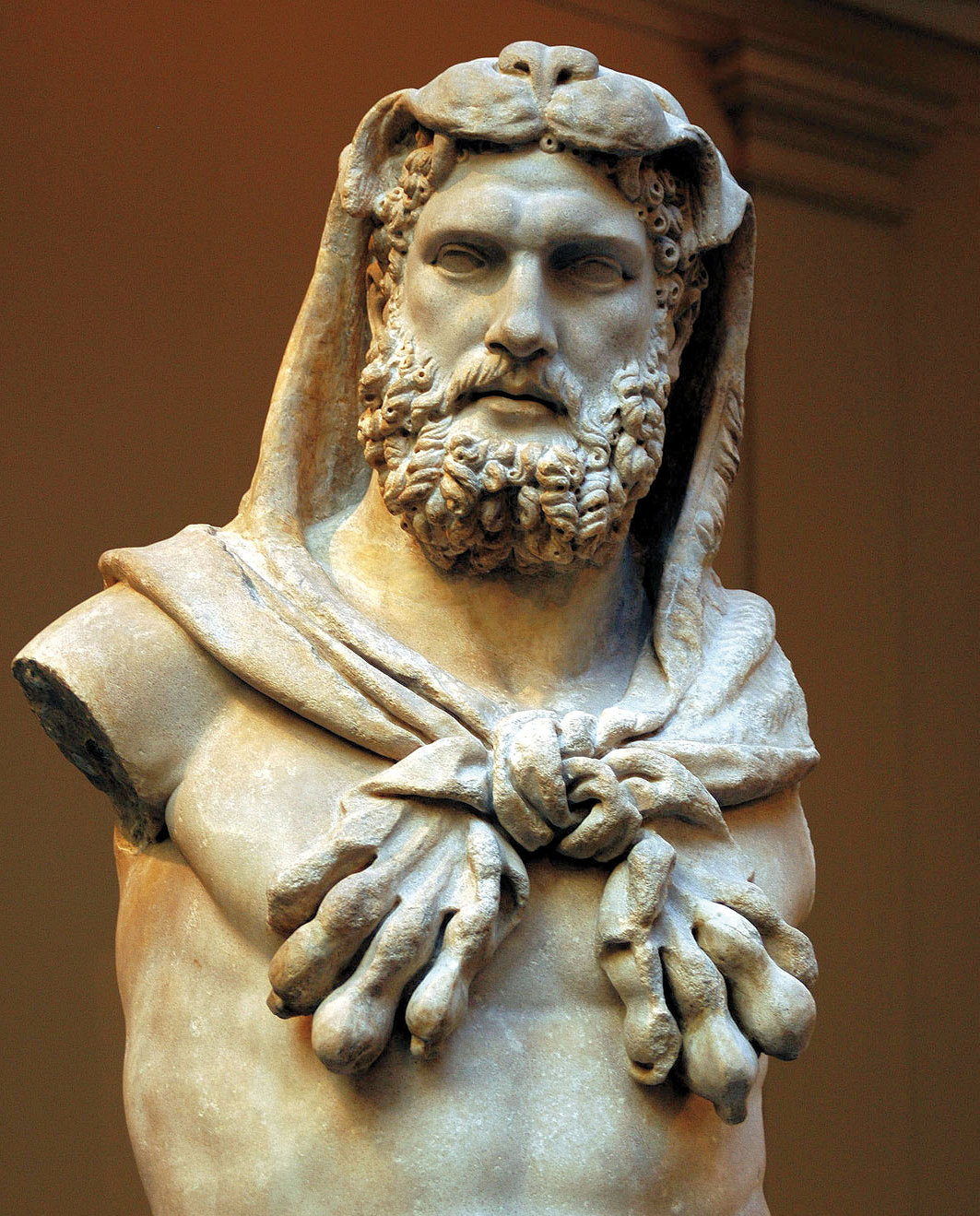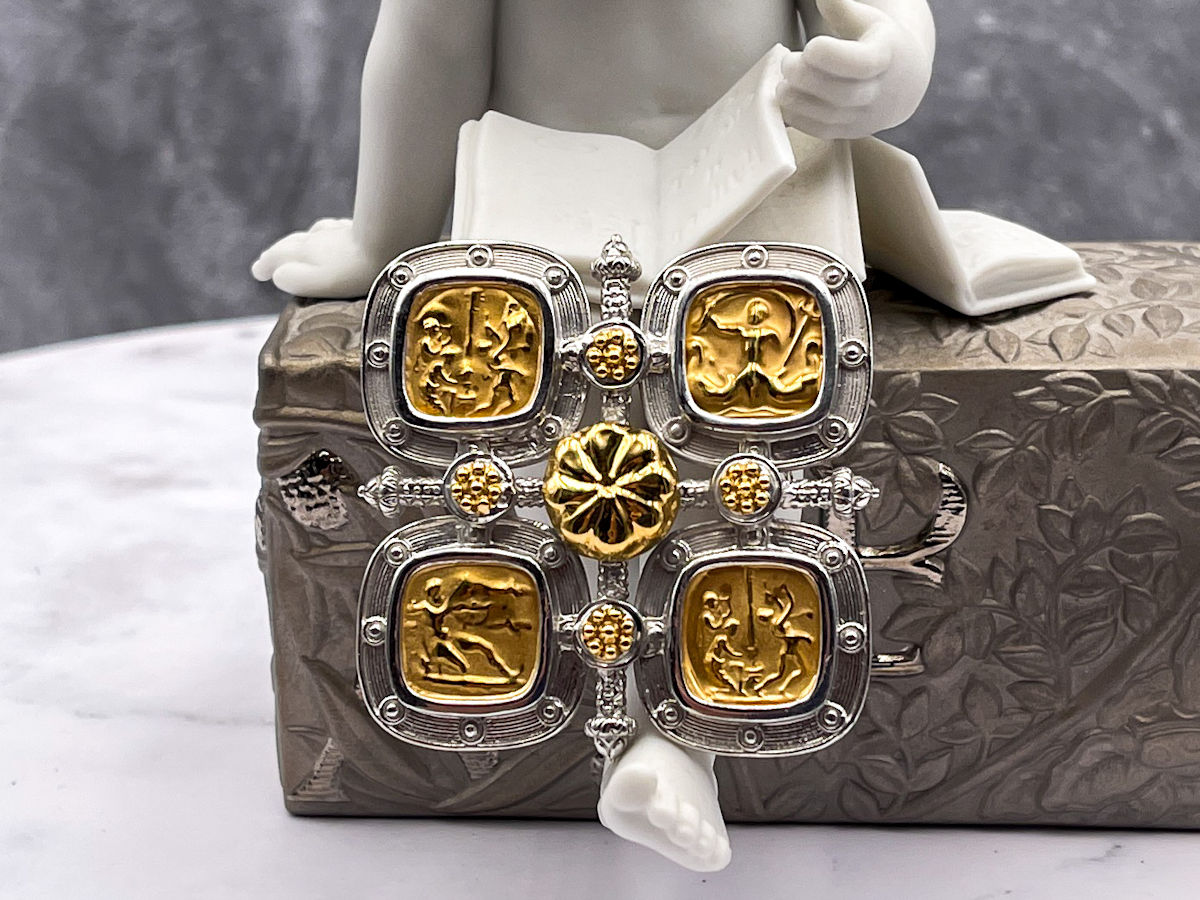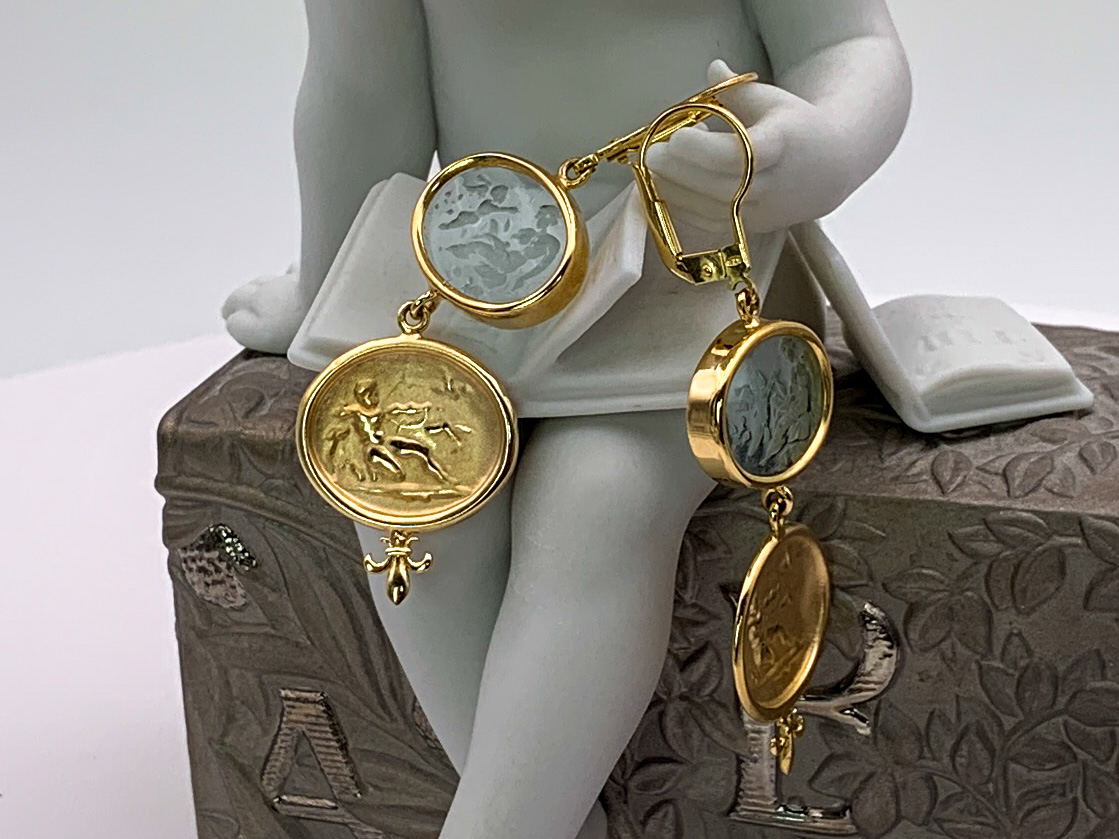Hercules / Heracles ~ The Birth of a Hero
I’m sure you’ve seen the cute cartoon versions of Hercules and Pegasus, but as you saw in the previous article on Pegasus even ancient myths have a way of being morphed over time into something with a far different polish.
To fully understand the story of Hercules, you first have to know a little about his infamous father, Jupiter (Zeus). Jupiter was unabashedly cavalier in his relationships with women, much to the chagrin of his wife, Juno (Hera). Being king of the gods and the bearer of lightning, Jupiter’s lust was as insatiable as the power he wielded. With such a force to contend with, Juno had very few countermeasures at her disposal when it came to her lothario of a husband. So instead, she often exacted her revenge upon his lovers and their offspring. The irony in this of course was that the lovers of Jupiter often had no say in the matter or were tricked into becoming involved with him.
As with most gods, Jupiter was a shapeshifter, a fact that he used to his advantage on many occasions. Very few of his affairs were conducted in his true form, perhaps because he was fearful of his wife’s watchful eye from Olympus. You can imagine that with his wife being the goddess of marriage, that any affairs were a definitive no-no, not that this ever stopped Jupiter. Using his advantage, Jupiter donned various disguises that included a swan, a bull, the impersonation of various mortals, and even a shower in order to pursue his passions. I don’t think any of us can quite imagine the logistics of some of those relations.How does Hercules fit into this conflict, you might ask? Well, unfortunately for him, his own mother, Alcmene, was tricked by one of these many guises. Taking the form of her husband, Amphitryon, Jupiter seduced her and from the union Hercules was born. Due to this, Juno sought to make Hercules’s life one that would make even those in the Underworld shudder. Not only would Hercules spend the rest of his life combating trials set by her, but even his original given name of Alcides was overshadowed by society’s name for him.
If you have ever thought how unusual it is that the name “Hercules” sounds an awful lot like “Hera” (the Grecian name for Juno), you are not wrong. Hercules actually translates to “the glory of Hera” and was a name that was given to him as a result of his many struggles with the goddess.
The first of these struggles came in his infancy, when Juno sent two serpents to attack him in his crib. Having the incredible strength of a demi-god, even at such a young age, prevented this attack from being fatal. As seen in cartoon movies, Hercules treated the two snakes more like rattly child’s playthings.
It is evident that his parents saw this strength as a boon as it meant he could protect himself and perhaps even them if the time called for it. This was made even more clear when he was allowed to go out as a teenager to tackle a lion that was plaguing the lands. Hercules destroyed the creatures with only his brute strength, taking the lion’s skin as his prize to wear as a cloak. One of the most notable ways to identify Hercules in art is the image of him wearing this attire.
However, one has to wonder if there was some naivety on the part of Alcmene and Amphitryon in not recognizing the treacherousness of Hercules’s strength, for as with most demi-gods there was always a price for their powers. Having such an enormous power did in fact come with a great deal of responsibility on the part of Hercules. Wielding his strength could come with a high price, and one that the exacting Juno was all too eager to have him pay. For, like most Shakespearean tragic heroes, Hercules had a weakness that would lead to his doom. While his strength was on an incomparable level, his intelligence was not the sharpest thing about him. Impulses and an overly confident nature were often his driving factors, to the extent that on a hot day he grew so angered that he swore to shoot at the sun.
These traits were what inevitably led to his own blind spot when it came to the true threat that Juno posed. For, while the great hero was certainly not easily destructible, he was very much vulnerable. You see, Hercules had been blessed with a lovely wife, Megara, and three sons. His contentment ate away at Juno, who let it fester as she plotted her revenge. In the most lethal of ways, Juno cursed Hercules with a temporary madness that caused him to annihilate his own family.
When waking from the madness, Hercules was determined to destroy himself, but his cousin Theseus encouraged him to venture to Athens with him. There, he could not shake the overwhelming grief and decided to visit the oracle at Delphi in order to determine what should be done with him.
The oracle instructed him, saying that he needed to be cleansed of the tragedy and the only way to do so was to seek his cousin Eurystheus. Naturally, this played right into Juno’s hands. She influenced Eurystheus in giving Hercules a series of twelve tasks for his atonement. These tasks are now known as “The Labors of Hercules.”
The series of tasks were a wide-range of ordeals set to torture Hercules. The first task was to slay the Nemean Lion and return with its skin as a sacrifice to the gods. The second task was to slay the Lernean Hydra (a serpent with nine heads that would grow back and one of which was immortal). The third labor was to capture and bring back the Hind of Ceryneia (a female deer that was a special pet of the goddess Diana).The fourth task was to bring the Erymanthian Boar back alive. The fifth task was to clean the stables of King Augeas and to clean up after his cattle in one day. The sixth task was to drive away the flock of Stymphalian Birds (which in some legends were portrayed as vicious man-eaters). The Pin/Pendant above illustrates this task. The seventh task was to capture the Cretan Bull. The eighth task was to capture the Man-Eating Horses of Diomedes. The ninth task was to bring back the belt of the Amazonian queen, Hyppolyte. The tenth task was to bring back the Cattle of Geryon (the son of Chysaor and grandson of Medusa). The eleventh task was to bring back golden apples that belonged to Jupiter (apples that were given to him as a wedding present from Juno and were in a garden guarded by a hundred-headed dragon and the Titan Atlas’s daughters (the Hesperides)). The twelfth and final task was to kidnap the three-headed beast Cerberus from the Underworld.
Hercules managed to make it through these tasks, each time succeeding. Much of the rest of his story continues in a similar manner through other adventures he faces, with Juno seething over his victories until his final end. Throughout his labors and other adventures, Hercules faces great struggle and personal torment, but his endurance and fortitude are traits that people admire so greatly. While his own personal tragedies could have easily defeated him, his perseverance shines through, as it will when you wear pieces set with his image. This pair of earrings below captures his image beautifully!
- Created on .
- Hits: 642



